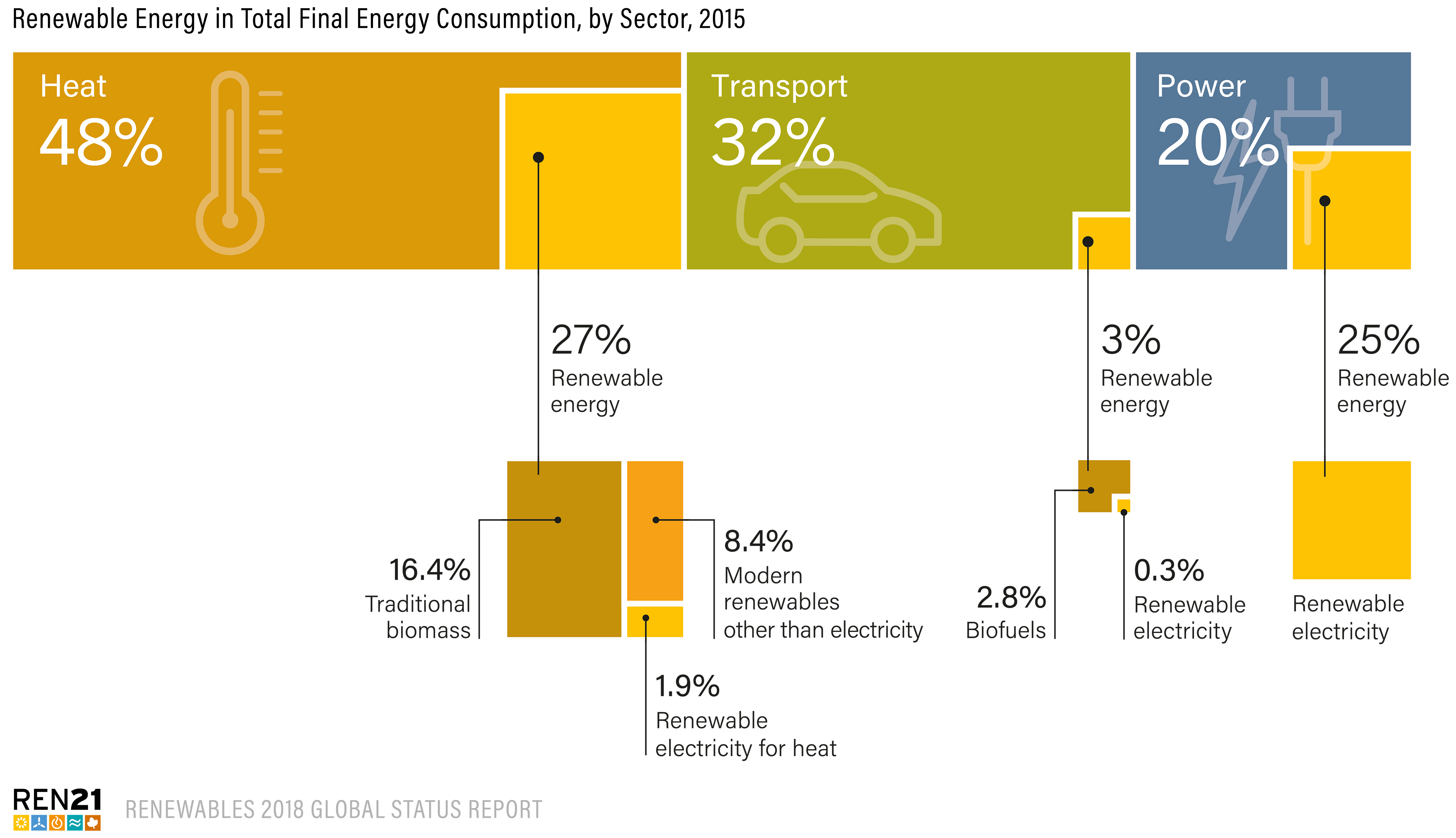‘Urgent action’ needed to boost renewable heat and transport
A new report has highlighted the continued dominance of renewable power to the detriment of other clean energy sectors, which seriously lag behind.

A new report has highlighted the continued dominance of renewable power to the detriment of other clean energy sectors, which seriously lag behind.
The non-profit REN21 has released data compiled from official government sources, international organisations, and hundreds of surveys to build a picture of the renewable energy sector over the past two years.
Their work shows that renewable power had another record-breaking year, adding 178 gigawatts of new capacity in 2017. But this astonishing growth is masking the lack of progress in heating and transport, which combined accounts for 80 percent of all energy consumption.
As of 2015, the latest available year, renewable heat provided 10 percent of global heating; in transport the figure is smaller, accounting for just 3.1 percent. However, progress is being made to electrify transport with 3 million electric vehicles now on the road.
The report highlights that the problem is partly on the policy level; while 146 countries have renewable energy targets for the electricity sector, only 48 have targets for heating and 42 for transport.
There is a pressing need to create the right policy frameworks and encourage the massive amount of investment needed to transform these sectors. The data comes at a time when global energy demand has increased by 2 percent and carbon emissions grew by 1.4 percent after three years of remaining stationary.
“Equating electricity with energy is leading to complacency,” said Rana Adib, Executive Secretary of REN21. “We may be racing down the pathway towards a 100 percent renewable electricity future, but when it comes to heating, cooling and transport, we are coasting along as if we had all the time in the world. Sadly, we don’t.”
However, transforming heat and transport is eminently possible as the rapid growth in renewable electricity has shown; the sector attracted $279 billion of investment last year alone.
Arthouros Zervos, REN21 Chair, added: “To make the energy transition happen there needs to be political leadership by governments – for example by ending subsidies for fossil fuels and nuclear, investing in the necessary infrastructure, and establishing hard targets and policy for heating, cooling and transport. Without this leadership, it will be difficult for the world to meet climate or sustainable development commitments.”







